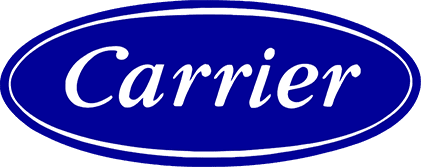The Basics of Commercial Heating and Cooling Maintenance
Regular heating and cooling maintenance is crucial in preserving the functionality and efficiency of HVAC systems. In fact, according to Data Scope, routine HVAC maintenance can cut the likelihood of expensive breakdowns by up to 95%. There are a couple of basic heating and cooling maintenance tips that commercial building managers should know to maintain their HVAC system. Let’s get started!
Change the Air Filters Regularly
If you conduct particularly dusty operations in your facilities, such as production and manufacturing, it’s even more crucial to check your filters frequently. Dust, grime, and other microscopic particles are all major causes of clogged and dirty filters. If not checked, they could obstruct airflow, forcing your system to work harder and consume more energy. The ideal time to change your filters is when they become unclean. Checks should be performed at least every three months, but you shouldn’t hesitate to check them more frequently if necessary.
Check and Clean Drainage Lines
To prevent structural damage, water vapor produced by furnaces and air conditioners must be adequately channeled outside of the building. Usually, this condensation is discharged into an outside collecting tray through drainage pipes, where it evaporates into the atmosphere. This water tray naturally attracts various microorganisms over time, including bacteria, algae, and mold, which might result in a system blockage due to the byproducts they create. The tray could spill and cause property damage if it isn’t frequently emptied. Regular checks are crucial to ensure everything is operating as it should. Drainage lines should be free of obstructions, the collecting pan shouldn’t overflow, and condensation should evaporate without obstruction.
Check the Thermostats
At the start of heating and cooling seasons, when temperatures reach the point where the heating and cooling system is not frequently in use, you should configure your thermostat. Use your building automation system or manually set your thermostats to do this. Even if you’ve previously programmed heating and cooling schedules, it’s a good idea to double-check them to make sure the schedules still suit your needs.
Clean AC Evaporator and Condenser Coils
During operation, the air that passes through the evaporator and condenser coils is exposed. They progressively accumulate dirt, fungus, and mold due to the unclean nature of the air, which can negatively influence their effectiveness. The coils should be cleaned yearly using professional coil cleaners and compressed air. Call your professional HVAC technician to ensure this gets done correctly.
Regular heating and cooling maintenance ensures that the systems operate at optimum levels and helps you save on costs. The aforementioned tips can be followed to ensure that your HVAC system remains in top shape. In addition, you should receive a yearly in-depth inspection of your HVAC machine. Reach out to us today for quality heating and cooling maintenance!


Turn To The Experts